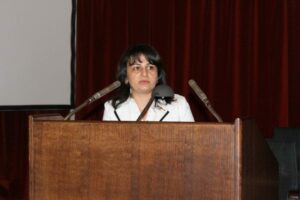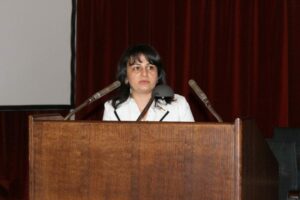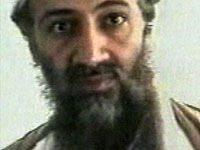 Sevinj Aliyeva, PhD Institute of History Azerbaijan National Academy of Sciences
Sevinj Aliyeva, PhD Institute of History Azerbaijan National Academy of Sciences[3] See (accessed 13 April2013).13
Kaspi, No. 74, 9October (26 September) 1918.
[11] SAAR, f.894, op.10, d.62, l.37ob., 40; SAAR, f.970, op.1, d.59, l.5ob.-16, 28,31;

 Sevinj Aliyeva, PhD Institute of History Azerbaijan National Academy of Sciences
Sevinj Aliyeva, PhD Institute of History Azerbaijan National Academy of Sciences[3] See (accessed 13 April2013).13
Kaspi, No. 74, 9October (26 September) 1918.
[11] SAAR, f.894, op.10, d.62, l.37ob., 40; SAAR, f.970, op.1, d.59, l.5ob.-16, 28,31;

Sarah Palin called for the invasion of the Czech Republic today in response to the recent terrorist attacks in Boston.
In an interview with Fox News, the former governor of Alaska said that although federal investigators have yet to complete their work, the time for action is now.
“We don’t know everything about these suspects yet,” Palin told Fox and Friends this morning, referring to Tamerlan and Dzhokhar Tsarnaev, who allegedly carried out the Boston Marathon attacks. “But we know they were Muslims from the Czech Republic.
“I betcha I speak for a lot of Americans when I say I want to go over there right now and start teaching those folks a lesson. And let’s not stop at the Czech Republic, let’s go after all Arab countries.
“The Arabians need to learn that they can’t keep comin’ over here and blowing stuff up. Let’s set off a couple of nukes in Islamabad, burn down Prague, then bomb the heck out of Tehran. We need to show them that we mean business.”
Although hosts Steve Doocy and Gretchen Carlson applauded Palin’s jingoism, they immediately attempted to rectify her multiple geographic errors.
“Well Islamabad is the capital of Pakistan, which isn’t Arab,” Carlson corrected, “and Tehran is the capital of Iran, which is predominantly Persian. But I do see your point.”
“Also Czech Republic isn’t really an Arab or even Muslim country, I don’t think,” Doocy added, “but otherwise what you’re saying makes a lot of sense. I think most Americans wish Obama would step up and lead on this one.”
Palin, however, didn’t take kindly to being corrected and defended her analysis.
“Steve, that’s probably one of the most ignorant things I’ve ever heard. How is Czech Republic not a Muslim country? You saw those brothers, they were Islamic and they were Chechen!”
“Yes there were Muslim and they were ethnic Chechens,” Doocy started, “but they grew up mostly in Kyrgyzstan and the United States. And more importantly, Chechens don’t come from the Czech Republic, they come from Chechnya, which is part of Russia. ”
“What’s the difference?” Palin responded. “Isn’t Russia part of the Czech Republic?”
“No, the Czech Republic is a separate country. It’s part of the European Union and a strong NATO ally,” Doocy noted. “But heck, why not? Let’s invade. What could go wrong?”
“Yeah and while we’re at it,” Carlson added, “let’s call the Queen of England and see if the U.K. will join us.”
In a statement released after the interview, Palin attacked Fox News and its “pro-Islamic” and “pro-geography” bias.
“This is just another case of the politically correct liberal media refusing to tell the truth about radical Islam,” she said.

Turkey’s interior minister Muammer Guler says one of the suspects in the Boston Marathon bombing spent 10 days in Turkey 10 years ago but had no other links to the country.
Guler said Friday that Tamerlan Tsarnaev had travelled to Turkey with a Kyrgyz passport, along with three other people with the same last name in July 2003. He said they entered Istanbul on July 9, 2003, and departed the country from Ankara 10 days later.
Guler said Turkey has shared all information it has about the suspects with FBI officials.
Tamerlan Tsarnaev, 26, was killed in a shootout in Boston. His brother Dzhokhar is on the run.
Turkey, a Muslim country, has taken in hundreds of Chechens fleeing the conflict in Chechnya.
via Turkey: No Link to Boston Marathon Suspects – ABC News.

 Osama bin Laden died a natural death nearly 5 years before it was announced that he was eliminated by the American commandos. This sensational statement was made by a Turkish politician, and a former U.S. intelligence agent. In an interview with Russia’s Channel One, he said that the Americans simply found and opened the tomb of the leader of al-Qaeda.
Osama bin Laden died a natural death nearly 5 years before it was announced that he was eliminated by the American commandos. This sensational statement was made by a Turkish politician, and a former U.S. intelligence agent. In an interview with Russia’s Channel One, he said that the Americans simply found and opened the tomb of the leader of al-Qaeda.
The journalists of Channel One first met this man in 2008. At the time he was featured in the documentary “Plan Caucasus,” talking about the attempts of the western intelligence services in the early 1990’s to separate the Northern Caucasus and, in particular, Chechnya from Russia. Chechen by nationality, Berkan Yashar is now a Turkish politician, but in those years he was one of the ideologists of Johar Dudayev. He asked for a meeting, promising to tell the truth about the death of Osama bin Laden whom he met in the early 90-ies in Chechnya.
“In September of 1992 I was in Chechnya, that’s when I first met the man whose name was Bin Laden. This meeting took place in a two-story house in the city of Grozny; on the top floor was a family of Gamsakhurdia, the Georgian president, who then was kicked out of his country. We met on the bottom floor; Osama lived in the same building, “said Berkan Yashar. Berkan said he did not know why bin Laden visited while in Grozny, and said only one thing about his meetings: “Just wanted to talk.”
However, according to Channel One, in those years the former employee of Radio Liberty Berkan Yashar already had an operational name Abubakar, given to him by the CIA. According to Berkan, after that trip Chechen nationals appeared in Osama bin Laden’s circle. Berkan Yashar emphasized that they did not participate “directly in the terror bombings.” “They protected bin Laden, it was his choice because he trusted them entirely, and knew that they would never betray,” said Yashar. According to Yashar he was not the only one who knew about it, but the Russian security services and the CIA were aware of this as well.
Answering the question whether he believed that the Americans killed Osama bin Laden in Pakistan, Berkan Yashar answered: “Even if the entire world believed I could not possibly believe it.” “I personally know the Chechens who protected him, they are Sami, Mahmood, and Ayub, and they were with him until the very end. I remember that day very well, there were three sixes in it: 26 June 2006. These people, as well as two others from London and two Americans, all seven of them, saw him dead. He was very ill, he was skin and bones, very thin, and they washed him and buried him,” said Berkan Yashar.
Yashar stressed that although the two American Muslims and two British Muslims the guards of bin Laden and saw him dead, they did not participate in the funerals. “Only three Chechens buried him, according to his will,” said Yashar. Bin Laden was buried, according to Yashar, in the mountains on the Pakistan-Afghan border. “There was no assault,” said Yashar. “I know the American operations from the inside: they find the grave, dig out bin Laden and tell everyone about this. They need to show how technologically the security services worked, how each step was controlled, and then present it as a great victory to show that taxpayers are not paying taxes for nothing. ”
Berkan now blames himself for the fact that the Chechens from the protection of bin Laden, “the terrorist number one” are no longer alive after the U.S. intelligence services began to tap Berkan’s telephone conversations. He said he was the first one who announced the date of death of bin Laden. “I was the first one who announced the date of his death in November of 2008 at a conference in Washington, not naming any names, and it looks like it was when the Americans began to track my contacts,” he said.
The last security guard Berkan saw Sami, who, according to him, a few days before bin Laden was declared killed, was kidnapped by the U.S. intelligence agencies. According to Berkan, most likely, it was him who disclosed to them the exact place of burial in the mountains on the Pakistan-Afghan border.
In any case, the last call from Sami was from Pakistan. Berkan explained why he informed the journalists of Channel One: he feared for his life. According to him, only wide publicity around the world can protect him from the CIA. However, just in case, the Turkish secret services, according to him, provided him with guards and weapons.
Pravda.Ru, 19.05.2011

Grozny, February 3, Interfax – Turkish Prime Minister Recep Erdogan has given three hairs of Prophet Mohammad to the Chechen Republic. The hairs were taken from Istanbul to Grozny on Thursday.
“The Chechen diaspora in Turkey asked Erdogan to give the holy hairs to Chechnya. We received a positive response within a month and the priceless gift has been delivered to Grozny today,” Aihan Ergyuven, chairman of the Chechen committee Sivas, told reporters at the Grozny airport.
Despite the cold weather, thousands of Chechens, including Chechen leader Ramzan Kadyrov, met the hairs at the Grozny airports and in the city’s streets.
A religious ritual marking this event was held in the republic’s central mosque.
According to earlier reports, a different hair of Prophet Mohammad was taken from Uzbekistan to Chechnya on January 26, 2011. The hair is a capsule, which is located in a box. According to historical documents, the hair, which was taken to the Grozny central mosque, had been in Uzbekistan since the times of the Caliphate.
via Interfax-Religion.

 By Farah Souames*
By Farah Souames*
Algiers, November 21, 2011
Morocco World News
The Russian investigation committee recently accused and arrested a suspected killer of the opposition journalist Anna Politkovskaïa, who was gunned down in the elevator of her Moscow apartment building on October 2006. But investigators have remained silent about who might have ordered the killing of Politkovskaïa, a sharp critic of the Kremlin and its appointed strongman in Chechnya. The alleged assassin was previously considered a potential witness, according to Vladimir Markine, spokesman for the Investigative Committee of the Russian Prosecutor-General’s Office. Markine announced: “The Russian investigation committee accused Lom-Ali Gaïtoukaïev for the murder of Politkovskaïa, for reasons relative to her professional activities.” Mr. Gaïtoukaïev has previously declared that an amount of $2 million had been paid for the murder.
Mr. Markine said another suspected killer has been accused, Ibraguim Makhmoudov, Gaïtoukaïev’s nephew. On September 2011, the investigation showed information proving that Lom-Ali Gaïtoukaïev organized the murder by forming a group which included former police officer Dmitri Pavlioutchenkov, former policeman Sergueï Khadjikourbanov and Makhmoudov.
A court found the Makhmoudov brothers and Sergueï Khadjikourbanov not guilty in 2009, but the Russian Supreme Court overruled the acquittal and sent the case back to prosecutors.
During her fearless reporting career, Politkovskaïa, 48, reserved her most vicious criticisms for Ramzan Kadyrov – Chechnya’s Kremlin-appointed president. Kadyrov has denied involvement in her death. Over the last three years, however, several other enemies of Kadyrov have met brutal deaths, most recently the human rights activist Natalia Estemirova, who in July was abducted from her home in Grozny, Chechnya’s capital, and shot.
A Bitter Taste of Freedom ………
Los Angeles-based, Marina Goldovskaïa’s latest film, A Bitter Taste of Freedom, is a soulful homage to her best friend Anna Politkovskaïa. She tells Politkovskaïa’s life in detail from childhood to the moment it was tragically claimed by a murderer. The murder itself and the investigation, which is still underway, have not been included in the film.
More revealing than previous films about Politkovskaïa, recipient of an Amnesty International Global Award for Human Rights Journalism, A Bitter Taste of Freedom blends bits of contextual archives and photos from the field with diacritic footage the filmmaker shot in Anna’s home during their many years of heart-to-heart conversations, beginning in 1990. Goldovskaïa became close to Politkovskaïa while making A Taste of Freedom about Anna’s husband Sasha Politkovsky, a prominent TV journalist known for his frank commentaries on contemporary politics. (She tracked him for six dramatic weeks during the height of popular demonstrations in the Soviet Union, when the final vestiges of totalitarianism gave way to the epoch-shifting imperatives of glasnost and perestroika.)
Colleagues, family members, former editors and even Mikhail Gorbachev appear onscreen to eulogize the fallen writer and activist, but the film’s best moments are with Anna herself, a charismatic presence admirably devoted to both her personal causes and the well-being of her two children, despite the constant threats on her life.
Marina Goldovskaïa has made 35 films and has earned numerous awards, including the PrixEuropa, Golden Gate Award, Golden Hugo, Joris Ivens and Silver Rembrandt. In 2006, she received a Lifetime Achievement Award for the Art of Documenting History from the Russian Association of non-Fiction Film and TV. She heads the Documentary program at UCLA Film School.
A Bitter Taste of Freedom, a joint project between Russia and Sweden, premiered in New York on August 20 and enjoyed huge success with the audience. It may compete at the 84th Academy Awards if the International Documentary Association approves the biopic for the program.
Goldovskaïa’s film shared the award for Best Documentary with Slovak-Czech film, Nickyho Rodina, at the Montreal World Film Festival in August. It will be appearing in the Oscar lead up program Docuweeks in New York and LA.
A total of seven Russian films were included in the program of Montreal’s film festival this year, including Once There Lived a Woman, a drama made by Andrey Smirnov, and Africa: Blood & Beauty by Sergey Yastrzhembsky, a former press secretary of President Boris Yeltsin.
Media freedom in Russia ………….
Anna Politkovskaïa’s assasination in 2006 remains of the strongest examples of the risks faced by journalists in Russia. Media freedom is an imaginary front that exists only when government interests are not the subject. Curious journalists censor themselves because of the risks of going beyond red lines.
Since 2000 during the Putin-Medvedev era, nearly 122 journalists have been found dead under varying circumstances such as car accidents or homicides Perpetrators of such crimes are rarely punished by a tolerant legal system.
In the beginning of 2000, Putin authorized a technical system of wire trapping for enabling the police to control internet use and require that internet providers cooperate with government surveillance.
* Farah Souames is Morocco World News’ correspondent in Algeria
Photo by: N. Kolesnikova / AFP
www.moroccoworldnews.com, November 21, 2011